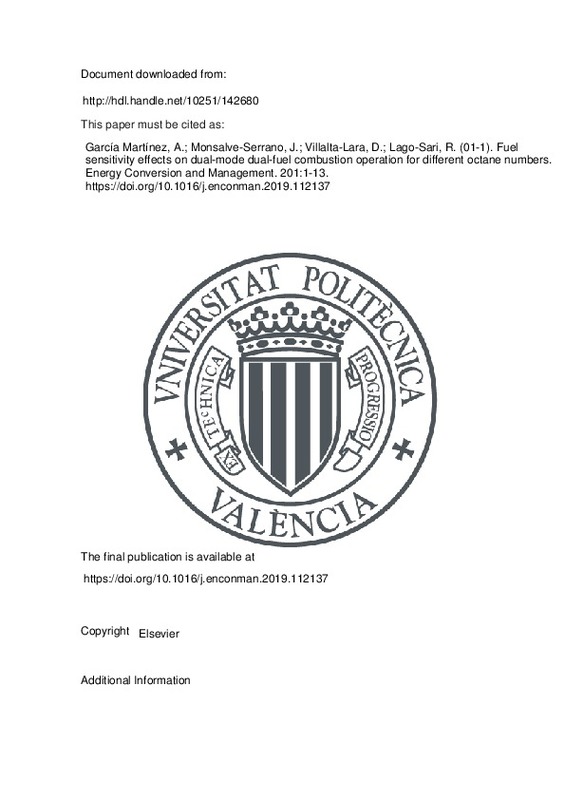JavaScript is disabled for your browser. Some features of this site may not work without it.
Buscar en RiuNet
Listar
Mi cuenta
Estadísticas
Ayuda RiuNet
Admin. UPV
Fuel sensitivity effects on dual-mode dual-fuel combustion operation for different octane numbers
Mostrar el registro completo del ítem
García Martínez, A.; Monsalve-Serrano, J.; Villalta-Lara, D.; Lago-Sari, R. (2019). Fuel sensitivity effects on dual-mode dual-fuel combustion operation for different octane numbers. Energy Conversion and Management. 201:1-13. https://doi.org/10.1016/j.enconman.2019.112137
Por favor, use este identificador para citar o enlazar este ítem: http://hdl.handle.net/10251/142680
Ficheros en el ítem
Metadatos del ítem
| Título: | Fuel sensitivity effects on dual-mode dual-fuel combustion operation for different octane numbers | |
| Autor: | Lago-Sari, Rafael | |
| Entidad UPV: |
|
|
| Fecha difusión: |
|
|
| Resumen: |
[EN] The dual-mode dual-fuel combustion is a promising combustion concept to achieve the required emissions and carbon dioxide reductions imposed by the next emissions standards. Nonetheless, since the combustion concept ...[+]
|
|
| Palabras clave: |
|
|
| Derechos de uso: | Reserva de todos los derechos | |
| Fuente: |
|
|
| DOI: |
|
|
| Editorial: |
|
|
| Versión del editor: | https://doi.org/10.1016/j.enconman.2019.112137 | |
| Código del Proyecto: |
|
|
| Agradecimientos: |
The authors thanks ARAMCO Overseas Company and VOLVO Group Trucks Technology for supporting this research. The authors also acknowledge FEDER and Spanish Ministerio de Economía y Competitividad for partially supporting ...[+]
|
|
| Tipo: |
|







![[Cerrado]](/themes/UPV/images/candado.png)


